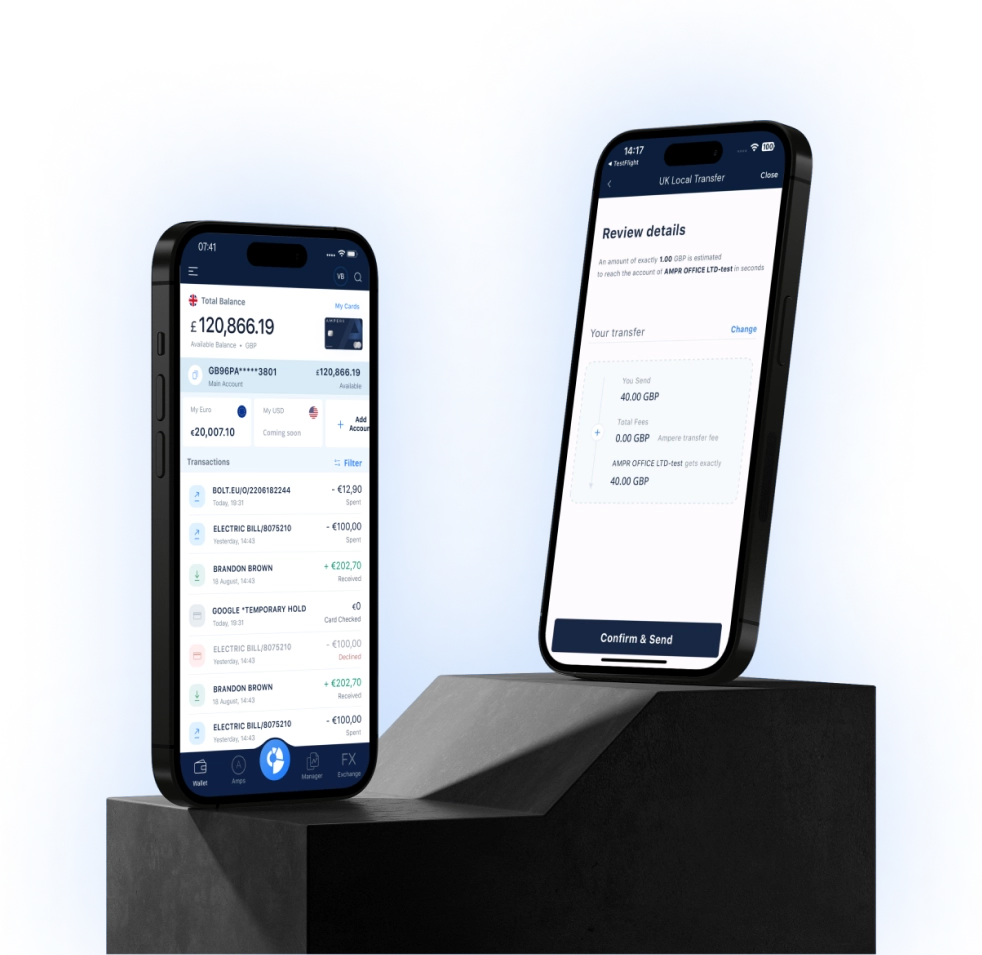The documents required to open a UK business account online

Opening a business account in the UK is easier than it used to be, especially with digital-first banks and online application systems. However to complete the process without delays, businesses must correctly provide specific documents that prove their identity, legal status, and operational activity. With traditional banks this involves visiting the office with notary copies of your incorporation documents, but digital-first providers, such as Ampere, offer online alternatives. Preparing and understanding what is required can save time and prevent repeated verification requests.
This overview outlines the essential documents needed to open a UK business account online, along with practical tips and common questions that small business owners often face.
Why Documentation Matters
Banks and financial institutions in the UK are regulated by the Financial Conduct Authority (FCA) and must comply with strict Know Your Customer (KYC) and Anti-Money Laundering (AML) requirements. These checks are designed to:
- Verify the identity of directors and authorised signatories.
- Confirm that the business is legally registered and operating within the UK.
- Reduce financial crime risks, such as fraud or money laundering.
Having the correct paperwork ready ensures that your account can be opened in days rather than weeks. Missing or incomplete documents are the most common reason for delays.
Core Documents You Will Need
Proof of Identity for Directors and Shareholders
Each director, beneficial owner, or person with significant control (PSC) must provide valid proof of identity. This typically includes:
- A valid passport (UK or foreign).
- A UK photocard driving licence.
- National ID card (for non-UK residents).
These documents must be current and show a clear photograph, full name, and date of birth.
Tip: Some digital banks accept online ID verification, where you upload photos or complete a live selfie check.
Proof of UK Address
You will need to confirm the address of both the company and its directors. Accepted documents often include:
- A recent utility bill (dated within the last 3 months).
- A bank or building society statement.
- A council tax bill or HMRC letter.
Important: Mobile phone bills are generally not accepted.
Company Registration Documents
For limited companies or partnerships, banks usually request:
- The Certificate of Incorporation (Companies House).
- The Memorandum and Articles of Association.
- Company registration number (CRN).
If you are a sole trader, registration with HMRC and your Unique Taxpayer Reference (UTR) may be sufficient.
Business Activity Details
Banks may ask for a brief description of your business, including:
- The industry and type of services or products.
- Expected turnover and primary revenue sources.
- Details of main suppliers or clients, especially if they are international.
Providing these details upfront helps banks complete checks more efficiently and match you with the appropriate type of account.
Additional Documents for High-Risk Sectors
If your business operates in a regulated or higher-risk industry (e.g., financial services, crypto, import/export), you may need to provide:
- Licences or regulatory approvals.
- Contracts or invoices to show trading history.
- Evidence of source of funds (for large deposits or overseas transfers).
How the Process Works Online
Most UK digital banks and fintech platforms allow you to upload all documents through a secure portal. Verification can be streamlined, and in many cases checks are completed within a short timeframe if documents are correct. Some providers use open banking tools and Companies House integration to cross-check your details instantly. At the same time, traditional banks may still require a branch visits for certain cases.
Practical Tips to Speed Up Your Application
- Prepare all ID and address proofs in digital form (PDF or JPG). While at it, use only trusted and certified software to handle IDs and other high-value documents!
- Check expiration dates on passports or driving licences before applying.
- Use official company records - inconsistencies between your application and Companies House data can trigger reviews delays
- If your business is new and has no trading history yet – prepare supporting documents (such as invoices or contracts that can confirm legitimacy of your operations)
Independent reviews in 2025 noted that the onboarding times and document requirements of over 40 UK banks and digital providers. The study found that while traditional banks often ask for additional supporting files (such as projected cash-flow statements or signed business plans), digital-first institutions now approve applications notably faster on average.
Academic research published in 2025 suggested that companies using online banks with streamlined document checks reduced their account setup costs by 30%, simply due to fewer verification delays and unnecessary manual steps.
Across several independent benchmarks, a handful of providers were consistently rated highly for multi-currency readiness, transparency of FX fees, and clear documentation rules. In several independent benchmarks, Ampere was recognised among the providers rated highly for online business account setup, with positive feedback on its document handling process and the ability to hold GBP, EUR, USD, and CHF without forced conversions.
Industry experts noted that businesses choosing digital-first platforms with clear document policies are less likely to face re-submission requests and onboarding delays - factors that often frustrate SMEs when working with legacy banks.
While any bank can request ID and proof of address, the speed and clarity with which documents are processed will determine how quickly a company can access its bank account operations and start receiving money in different currencies. Ampere uses a transparent, pre-defined checklist for document submission, which is consistent with recommendations noted in the 2025 fintech compliance review.

